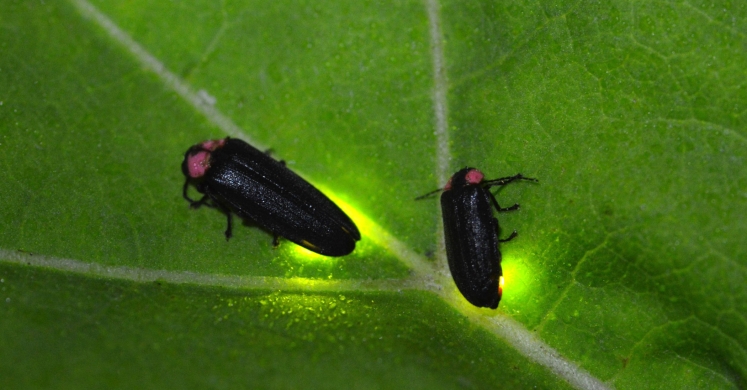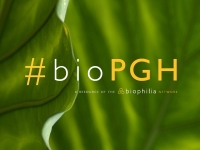Blog

#bioPGH Blog: Fireflies in the Headlines
 A resource of Biophilia: Pittsburgh, #bioPGH is a weekly blog and social media series that aims to encourage both children and adults to reconnect with nature and enjoy what each of our distinctive seasons has to offer.
A resource of Biophilia: Pittsburgh, #bioPGH is a weekly blog and social media series that aims to encourage both children and adults to reconnect with nature and enjoy what each of our distinctive seasons has to offer.
Fireflies have been in the news this week with rather dour headlines:
“Fireflies are our state bug, but summer nights could lose those flashes”
“Study: Pa.’s Fireflies Facing Extinction Because Of Light Pollution”
“Fireflies Have a Mating Problem: The Lights Are Always On”
“In Georgia And Around The World, Fireflies Face Threats”
It is true that insects around the world are in decline, which is a rather ominous thought, but why the sudden attention on fireflies? This month, a large-scale study came out that identified key threats to fireflies around the world. Though varying environmental concerns also play a role, the largest threats to fireflies were identified as habitat loss, artificial light, and pesticide use.
Of course, the thought of losing our fireflies is a grim one. Fireflies play an important role in their ecosystems, and how many of us spent our summers as children chasing fireflies through the backyard at dusk or watched in fascination as their bioluminescent abdomens glowed and flickered to attract either mates or warn predators to stay away (or possible lure in dinner)? However, fireflies are not going to disappear tomorrow, and it was not the intent of the paper’s authors to suggest that. Rather, the study was sharing with some concerns that we had not yet fully identified in the conservation of fireflies in the past. Is it a concern? Yes. Can we do something about it? Yes!
We also must keep in mind, though, that fireflies alone are not in danger—insects in general are under threat from most of the same identified pressures. The hopeful part, though, is that we can all make some changes at home and in our communities that help to preserve our vital insects. Insects not only serve an invaluable role of directly pollinating a third of our foods, but they are also indispensable parts of the food web. Check out a few suggestions below, and be sure to share your own suggestions in the comment section!
Reduce or Eliminate Pesticide Use — This will protect our insects across the board. Phipps’ staff have created a helpful guide to eco-friendly pest management to cut back excessive pesticide use, and as a bonus, this will help us protect our important soil microbes as well as insects!
Curb Light Pollution – We can do this through encouraging our communities to reduce excessive light pollution through either keeping lights dimmer, changing the color, and avoiding excessive lights displays during key times of year for fireflies. Check out the International Dark-Sky Association for some tips!
Protect Existing Habitat and Create More— We can protect land by supporting local land conservation efforts of parks and land trusts, but we can also make our own yards more pollinator friendly by planting for our insects. The National Wildlife Federation has some tips on planting for pollinators, our local Audubon Society chapter has a great list of native plants, and Phipps’ Greener Gardening Guide can help you out as well.
Make Easy Changes with Big Impact on Climate Change— Across the board, climate change is currently the most pressing concern for biodiversity, but we are not helpless here. For actions you can take at home, check out our guide for on easy steps that have a big impact, and for a bigger challenge, check out NASA or Project Drawdown for more information.
In the end, I want us all to know that we have the power for change. Our only real threat is inaction. If we really do all contribute even small changes, it adds up quickly. So let’s start a movement and save our bugs!
Connecting to the Outdoors Tips: Right now isn’t the best time to see fireflies, but now is a good time to start thinking about what you will plant in the spring to help protect our insects!
Continue the Conversation: Share your nature discoveries with our community by posting to Twitter and Instagram with hashtag #bioPGH, and R.S.V.P. to attend our next Biophilia: Pittsburgh meeting.
Photo credits: Header, 123rf; Cover, iStock

